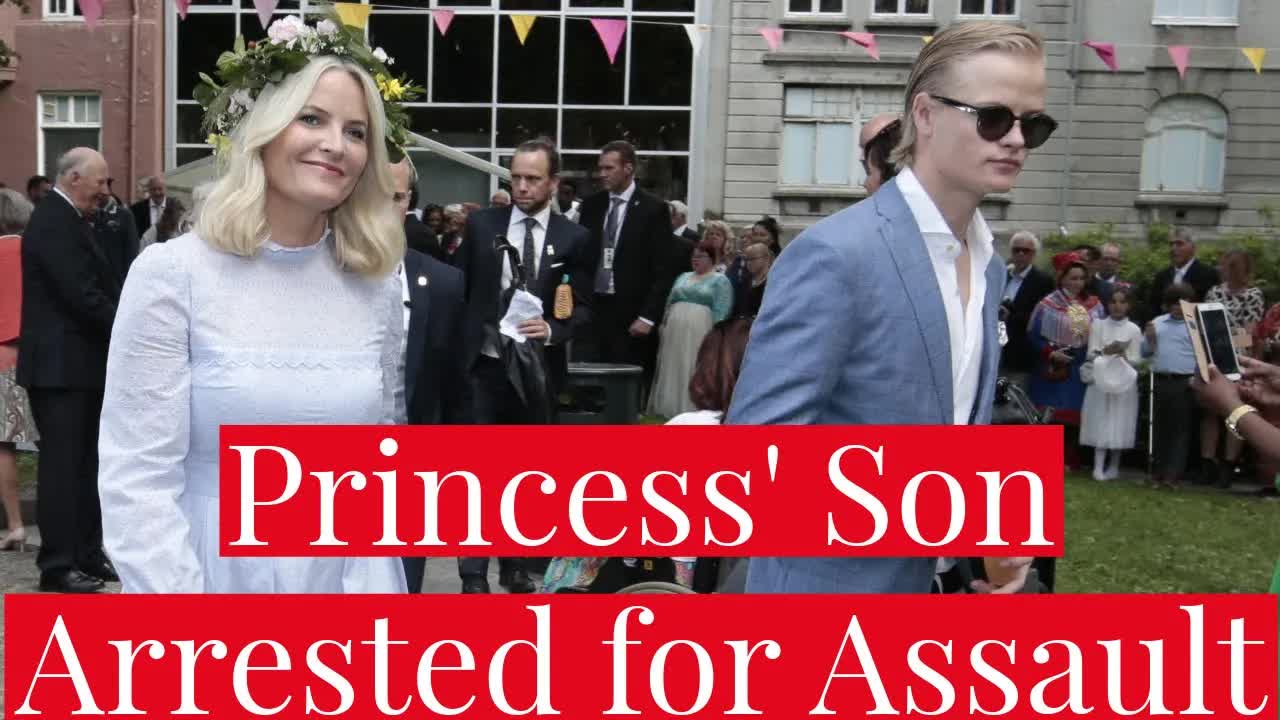Must Read
Royal Turmoil: The Arrest of Marius Borg Høiby Sends Shockwaves Through Norway
Recently, the Norwegian royal family has found itself embroiled in a scandal that has captured the attention of both the public and the media.
Marius Borg Høiby, the son of Crown Princess Mette-Marit, was arrested under serious allegations including assault, property damage, making threats, and theft of a scooter.
This troubling situation has only escalated as former girlfriends have begun to share their own harrowing experiences with him, painting a picture of a young man struggling with deep-seated issues.
The incident that sparked this controversy reportedly occurred in the early hours of August 4th at an apartment linked to his current girlfriend, although she has distanced herself from that title.
According to reports, the altercation involved violent behavior, including strangleholds and physical blows.
After the alleged attack, Høiby went on to party, which adds another layer of complexity to an already disturbing narrative.
What makes this case particularly noteworthy is the backdrop of the Norwegian royal family, which has been under scrutiny following the tumultuous saga of the British royals, particularly Prince Harry and Meghan Markle.
However, many observers argue that the circumstances surrounding Høiby are more severe, given the nature of the charges and the apparent dysfunction within the royal family dynamics.
Crown Prince Haakon's decision to marry a single mother with a child—Marius—has led to a unique situation.
Although he enjoyed certain privileges as a royal relative, Høiby was never fully integrated into the royal family structure.
Some speculate that this lack of formal royal status may have contributed to his sense of entitlement and subsequent reckless behavior.
The fallout from Høiby's actions has been significant, impacting the reputation of the Norwegian royal family.
Polling indicates that public favorability has dropped by nearly 20 points, a clear indication of how seriously this situation is being taken by the populace.
As the royal family prepares for an upcoming wedding, the shadow of this scandal looms large.
Marius has publicly acknowledged his struggles with substance abuse and mental health issues, admitting that the violent incident was fueled by alcohol and cocaine.
His statement reflects a desire for accountability, but it raises important questions about the role of privilege and responsibility when dealing with such serious allegations.
Adding to the complexity, two former girlfriends have come forward, alleging psychological and physical abuse at the hands of Høiby.
Their testimonies have prompted police investigations into these claims, potentially extending Høiby's legal troubles and increasing the severity of his charges.
One of the women expressed regret for not reporting her experiences sooner, highlighting the often-hidden nature of domestic violence.
As the situation continues to unfold, Crown Princess Mette-Marit and Crown Prince Haakon have faced tough questions regarding their parenting and the apparent lack of intervention in Marius's life.
Critics argue that their failure to address Høiby's issues may have allowed his troubling behavior to fester unchecked.
The royal family has maintained a degree of distance from the media, directing inquiries to Høiby's lawyer while emphasizing the importance of privacy for all parties involved.
This approach, however, has not quelled public curiosity or concern about the implications of Høiby's actions for the monarchy.
In the wake of this scandal, discussions around the responsibilities of royal family members and their accountability have intensified.
Many are drawing parallels between Marius's struggles and those faced by other young royals in Europe, though opinions vary on the appropriateness of such comparisons.
Ultimately, the situation serves as a stark reminder of the complexities of royal life, where privilege and public expectation collide.
As Marius seeks treatment and attempts to navigate the consequences of his actions, the Norwegian royal family must grapple with the fallout and work to restore their standing in the eyes of the public.
As this story develops, it remains to be seen whether Marius Høiby will find the help he desperately needs or if the royal family will continue to face scrutiny for their handling of a deeply troubling situation.
The coming months will likely reveal much about not only Marius's future but also the resilience of the Norwegian monarchy in the face of adversity.




















